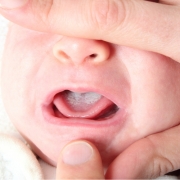
Thrush is a common infection of the mouth and tongue caused by yeast. An infant with this infection will have white patches on the inside of the lips and cheeks which will not rub off. Untreated thrush can lead to a severe diaper rash caused by the same yeast or yeast infection of mom’s nipples … Continue reading “Thrush”
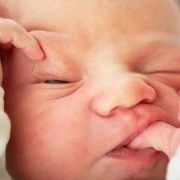
Babies are born with reflexes that influence much of their behavior over the first few months. Some of these include sucking, turning the head toward your hand if you stroke her cheek or mouth, and the grasp reflex in which stroking your baby’s palm or underside of their foot will cause them to curl their … Continue reading “Reflexes, Hiccups, & Infant Behavior”

Always put your baby to sleep on his back and on a firm sleep surface. Keep soft objects, loose bedding, or any other objects that could increase the risk of entrapment, suffocation, or strangulation out of the crib. Place your baby to sleep in the same room with you but not the same bed. Your … Continue reading “Preventing SIDS – Sleep Positioning”

Avoid large crowds and be careful in public places for the first 2 months of life. Good hand washing before and after handling your baby is one of the most important things you can do to prevent infection. You should always have hand sanitizer available. Anyone caring for your baby should be up to date … Continue reading “Preventing Illness in Newborns”
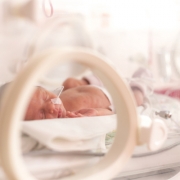
Your baby may have been born earlier than expected. It’s normal to have a lot of questions, feel stress and to be worried. Premature babies require extra medical care and support that is often given in a neonatal intensive care unit (NICU). As a parent to a premature baby, there are resources available to you … Continue reading “Premature Infants”

It is normal to have emotional ups and downs after delivering a baby. For some mothers, the experience of pregnancy and childbirth is followed by significant sadness, anxiety, difficult sleeping and difficulty making decisions. A depressed or anxious mother may not be able to provide the nurturing that her baby needs to grow and thrive—putting … Continue reading “Postpartum Depression”
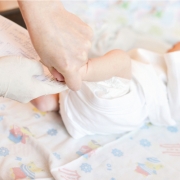
Before your child leaves the hospital, testing will be performed for inherited diseases, hearing loss, jaundice, critical heart defects, etc. Screening for and treating these conditions shortly after birth helps ensure the best outcome for your baby. If there are abnormal results, your pediatrician will discuss this with you. Read More: health.utah.gov
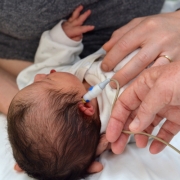
Your baby will be screened for hearing loss before going home. Hearing is important for developing language and communication skills. Your baby may not pass the first hearing screen. If this is the case, you will be given instructions, including repeating the test within two to three weeks of going home. It is important to … Continue reading “Newborn Hearing Screening”

You’ve planned and anticipated your baby’s arrival for months, and birth may be different than you expected. What matters most is that your baby finally arrives and is healthy. Take time to consider your preferences for your baby’s birth and care following birth. Keep track of your preferences so you can let your healthcare providers … Continue reading “Hospital—Preparing for Birth”
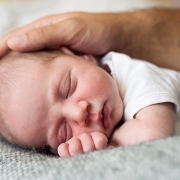
You will notice 2 areas on your baby’s head that seem to be lacking bony protection. These soft spots, referred to as fontanelles (anterior for the larger one in the front, posterior for the smaller and typically less noticeable one in the back), are normal gaps in a newborn’s skull that will allow your baby’s … Continue reading “Fontanelle (Soft Spot)”